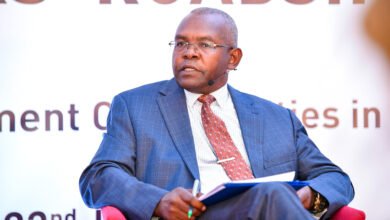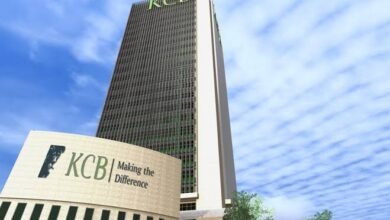
Kenyans are looking at tougher times ahead as the Central Bank of Kenya (CBK) predicts a high cost of living in the coming months.
This will be caused by increased fuel and food prices and the impact of the recently implemented tax measures.
Kenya’s overall inflation stood at 6.6 percent in August 2021 compared to 6.5 percent registered in July.
Food inflation increased to 10.7 percent from 9.1 percent, reflecting the higher prices of commodities like tomatoes, cabbages, Irish potatoes, cooking oil (salad), beef with bones and bread.
Fuel inflation also remained elevated at 9.2 percent owing to the impact of the rise in international oil prices.
While the pace of recovery of the global economy remains uneven across countries, CBK insists that Kenya’s inflation levels will remain within the target range.
Leading indicators for the economy also point to a strong GDP recovery this year supported by improved performance of the construction, manufacturing, education, real estate and transport and storage sectors.
Economic Headwinds
About 253,500 jobs were shed in the three months to March despite the economy showing signs of recovery from Covid-19 hardships, with employees aged below 25 and those above 40 bearing the brunt of the layoffs.
CBK’s warning comes on the back of a report from the Kenya National Bureau of Statistics (KNBS) which shows the number of people in employment fell to 17.84 million between January and end of March compared to 18.09 million the previous quarter.
Young people below the age of 25, mainly secondary school and college graduates, were the hardest hit by job cuts in an economic setting that is plagued by reduced hiring on the back of sluggish corporate earnings.
This came as Kenya’s economy contracted for the first time in nearly three decades when the coronavirus pandemic hit the key sectors, including tourism, education, transport and manufacturing.
Kenya’s output or Gross Domestic Product (GDP) declined by 0.3 percent in 2020.
The economy, which grew 5 percent in 2019, exited a recession in the last quarter of 2020 after posting marginal growth of 1 percent in the three months through December.
At the height of the coronavirus pandemic last year, President Uhuru Kenyatta rolled out a Ksh.53.7 economic stimulus package which CBK’s Monetary Policy Committee (MPC) says is expected to boost domestic demand.
MPC on Tuesday said there was “progress in the implementation of the FY2021/22 Budget, and in particular, the improved revenue performance with the continued pick up of economic activities.”





